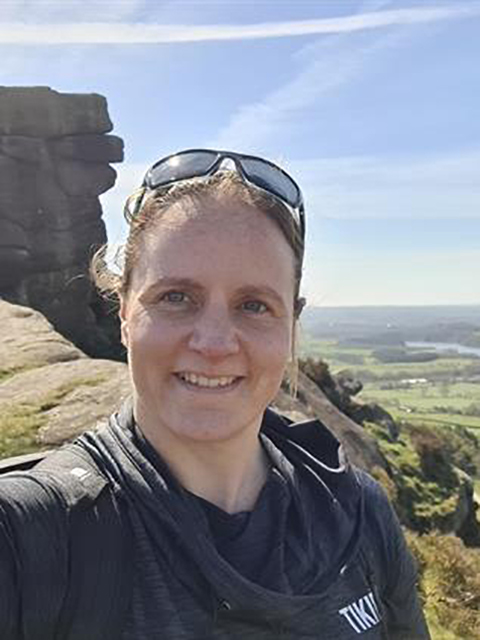Academic Career
- 2022-present: Lecturer in Geography and Environmental Science, School of Social Sciences and Humanities, Loughborough University.
- 2017-2022: Lecturer in Environmental Science, School of Geography, Geology and the Environment, Keele University.
- 2015-2017: Post-doctoral research officer, Bangor University. Water biogeochemist on NERC funded DOMAINE project
- 2013–2015: Post-doctoral research officer, Bangor University. Soil biogeochemist for NERC funded Macronutrients project.
- 2012-2013: Research associate, Bangor University. Soil biogeochemist investigating soil response to biochar application.
- 2013: PhD Soil Science. Bangor University “Carbon dynamics in terrestrial ecosystems: agricultural grasslands and Arctic tundra” Supervised by Prof. Davey Jones and Prof Peter Golyshin. Awarded Drapers Company Medal for Outstanding Postgraduate Contribution.
- 2006–2008: Senior Teacher: Wonderland School, South Korea:
- 2006: Formation damage Geologist: Corex Ltd, Aberdeen, UK.
- M.Sci (Hons) Geology (2:1): 2001 – 2005 University of Birmingham
Professional Responsibilities
- 2021 present: Member of the NERC Peer Review College.
- 2021: Editor: Frontiers in Soil Science
- 2020-present. Fellow of the Higher Education Academy.
- 2019. Honorary Consultant in Public Health & the Environment for Shropshire Council.
- Ongoing: Journal peer reviewer: Nature Scientific Reports; Soil Biology & Biochemistry; Journal of Plant Nutrition & Soil Science; Experimental Agriculture; European Journal of Soil Science.
- 2019-2022: Advisory board member for the Institute of Sustainable Health and Welfare as part of the new Harper-Keele Veterinary School.
- 2019-2022: Chair of the Geography, Geology and Environmental Science Laboratory Committee
- 2015-2017: Co-founded Bangor University Women in Science Network: to develop opportunities for women in academia. Successfully achieved financial support from the department.
Helen’s research explores critical thresholds controlling microbial pathways in terrestrial (spanning urban green spaces, agricultural grasslands to arctic tundra) and aquatic freshwater environments (temperate and arctic) to understand their role in large scale global nutrient cycling. Her research is highly interdisciplinary which in a rapidly changing world, is crucial to understand how resilient invisible, small-scale microbial processes are to future environmental perturbations. Her work has two main strands:
- Soil biogeochemistry, particularly the role of soil-microbial interactions in nutrient cycling and how environmental and land use change influences these processes through field and laboratory-based techniques coupled with modelling of these complect interactions to improve estimates of microbial nutrient utilisation. This includes recent work on wildfire impacts on soil resilience (UK and Italy) and how flooding impacts soil organic matter dynamics in forested flood plains (Australia). New areas of interest focus on urban soils, solar farm impact on soil health, antimicrobial resistance in soils and soil science education.
- Freshwater biogeochemistry and the role of microbial processes in nutrient cycling both within water and sediments through field (UK, Iceland, South Africa) and laboratory work. This includes recent work on dissolved organic nutrients, their characterisation and understanding their ecological role in ecosystem function. New area of research focus on understanding climate change impacts on reservoir processes and, emerging contaminants in freshwater systems and their impacts on water quality and ecosystem health.
Helen teaches in areas covering terrestrial and aquatic biogeochemistry and field and laboratory-based teaching.
Helen welcomes PhD students, particular in soils and freshwater biogeochemistry.
Current Students
- Luigi Marfella (2020-) “Rising from the ashes: Understanding the biological resilience and social significance of fires in the UK rural landscape.” (PI; Transferred from Keele)
- Modaji Lebepe (2022-) “Ecosystem and Community Health of selected Urban Streams in Mankweng, Limpopo: a One-Health application and adaptation of the Urban Stream Assessment System tool” (Co-I; based in Limpopo, SA and Keele)
- Madden, C., Pringle, J.K., Jeffery, A.J., Wisniewski, K.D., Heaton, V., Oliver, I.W., Glanville, H.C., Stimpson, I.G., Dick, H.C., Eeley, M., Goodwin, J. (2022). Portable X-ray fluorescence (pXRF) analysis of heavy metal contamination in church graveyards with contrasting soil types. Environ Sci Pollut Res (2022). https://doi.org/10.1007/s11356-022-19676-z.
- Lloyd, C.E.M., Mena-Rivera, L.A., Pemberton, J.A., Johnes, P.J., Jones, D.L., Yates, C.A., Brailsford, F.L., Glanville, H.C., McIntyre, C.A., Evershed, R.P. (2022). Characterisation of riverine dissolved organic matter using a complementary suite of chromatographic and mass spectrometric methods. Biogeochemistry. https://doi.org/10.1007/s10533-022-00913-z.
- Seymour, M., Edwards, F.K., Cosby, B.J., Bista, I., Scarlett, P.M., Brailsford, F.L., Glanville, H.C., de Bruyn, M., Carvalho, G.R., Creer, S. (2021). Environmental DNA provides higher resolution assessment of riverine biodiversity and ecosystem function via spatio-temporal nestedness and turnover partitioning. Commun Biol 4, 512. https://doi.org/10.1038/s42003-021-02031-2.
- *Brailsford, F.L., *Glanville, H.C., Marshsall, M.R., Yates, C.A., Owen, A.T., Golyshin, P.N., Johnes, P.J., Jones, D.L. (2021). Land cover and nutrient enrichment regulates low-molecular weight dissolved organic matter turnover in freshwater ecosystems. Limnol. Oceanogr. 66, 2979–2987. https://doi.org/10.1002/lno.11852.*Joint first author
- Brailsford, F.L., Glanville, H.C., Golyshin, P.N., Johnes, P.J., Yates, C.A., Jones, D.L. (2019). Microbial uptake kinetics of dissolved organic carbon (DOC) compound groups from river water and sediments. Scientific Reports. 2019: 9(1), 11229. https://doi.org/10.1038/s41598-019-47749-6
- Brailsford, F.L., Glanville, H.C., Golyshin, P.N., Marshall, M.R., Lloyd, C.E., Johnes,P.J., Jones, D.L. (2019). Nutrient enrichment induces a shift in dissolved organic carbon (DOC) metabolism in oligotrophic freshwater sediments. Science of the Total Environment 690, 1131-1139. https://doi.org/10.1016/j.scitotenv.2019.07.054.
- Glanville, H.C., Hill, P.W., Schenpf, A., Oburger, E., Jones, D.L. (2016). Combined use of empirical data and mathematical modelling to better estimate the microbial turnover of isotopically labelled carbon substrates in soil. Soil Biology & Biochemistry 94, 154-168. https://doi.org/10.1016/j.soilbio.2015.11.016.
- Glanville, H.C., Hill, P.W., Macarone, L., Golyshin, P., Murphy, D.V., Jones. D,L. (2012). Temperature and water controls on vegetation emergence, microbial dynamics, and soil carbon and nitrogen fluxes in a high Arctic tundra ecosystem. Functional Ecology. 26, 1366-1380. https://doi.org/10.1111/j.1365-2435.2012.02056.x
